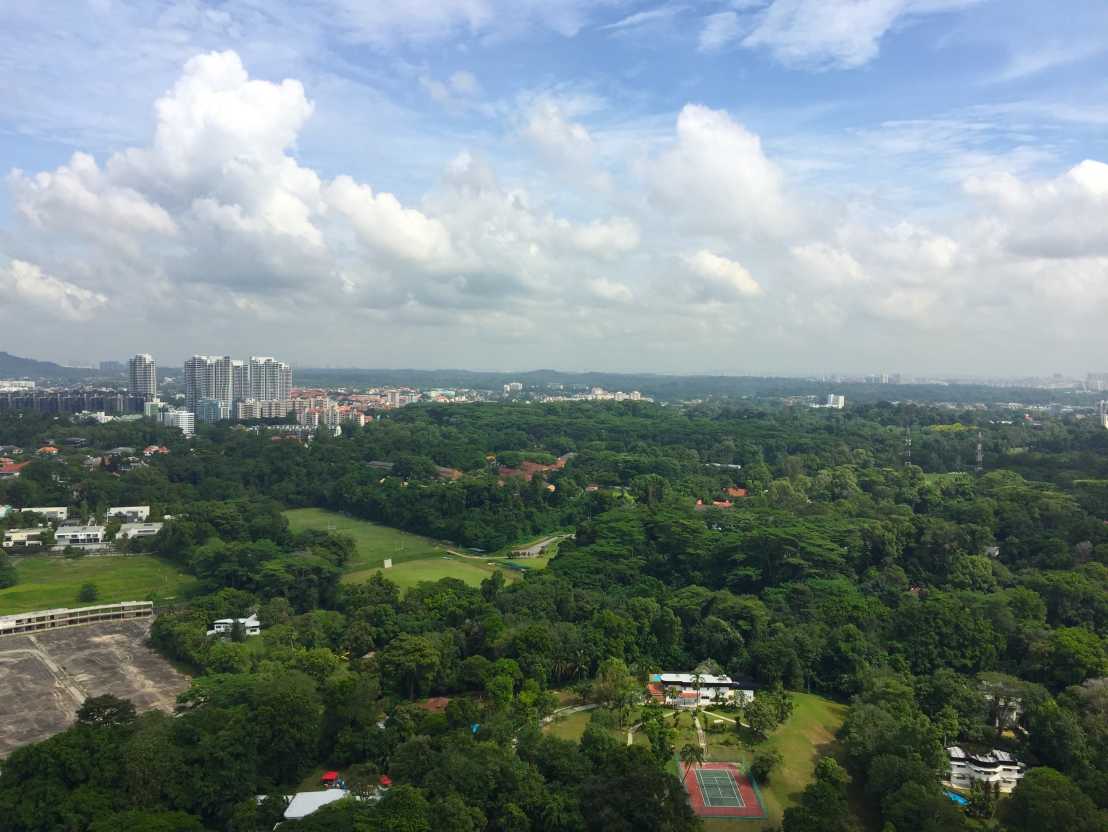Assessing Singapore's Natural Capital
Introduction

Singapore is a global leader in green urban development who has recognised that the quality of the natural environment is a key to economic performance and liveability. Singapore has, for example incorporated vegetation into building design to increase human comfort in a hot, tropical city. However, significant challenges exist in incorporating the environment into holistic, national-scale planning; while the economic benefits of development are simple to calculate, we lack comparable information for environmental assets (termed natural capital). Methods to assess natural capital at a national level have been developed for many European nations, but these are not readily applicable to tropical nations such as Singapore, where climatic conditions, ecosystems and national priorities are very different.
Motivation
This project will contribute to more efficient and sustainable urban land planning decisions at the national level, with government stakeholders listed as key collaborators in this project. The research can position Singapore as a leader of policy-relevant natural capital assessments in a region of SE-Asia where urbanization is currently occurring both very rapidly and unsustainably.
Goal
This three-year research project aims at incorporating the environment into holistic, national-scale planning by calculating the economic benefits from environmental assets (termed natural capital). The objectives of this project are: 1) to quantify the current status and health of Singapore’s major ecosystems; 2) to quantify the economic and societal values of these ecosystems; 3) to assess tradeoffs between human development and natural capital, and 4) to model future policy and urban development in order to find opportunities to integrate natural capital.
Approach
To generate assessment documents and tools that are relevant for policy making in Singapore, workshops will be held with a task force of governmental and academic members. These requirements will be achieved through the following Work Packages (WP):
WP1 Procedures and Methods – develop a protocol for assessing natural capital that is appropriate for the Singapore context. Identification of key habitats in Singapore and the services that they provide to people to people followed by the development of methods for mapping habitats and services at appropriate spatial scale. The method that is developed will provide a protocol that could be used to monitor changes in Singapore’s natural capital.
WP2. Assessment – conduct an assessment of the current status of Singapore’s natural capital, and the economic value of the services that it provides. This assessment will provide the first national-scale baseline of the status of Singapore’s ecosystems, and the first estimate of their economic values.
WP3. Tools – develop a prototype tool to inform decision-making about natural capital.
WP4. Policy – identify priorities for policy to maintain and improve the delivery of ecosystem services in Singapore.
Duration
2018- 2021
Financing
National Research Foundation of Singapore
Project team
Adrienne Grêt-Regamey (ETH Zurich)
external page Daniel A. Friess (National University of Singapore)
Peter J, Edwards (ETH Zurich/ Singapore-ETH centre)
Daniel R. Richards (Singapore-ETH Centre)
Tan Puay Yok (National University of Singapore)
external page Roman Carrasco (National University of Singapore)
external page Natasha Bhatia (Nanyang Technological University)
external page Patrick Martin (Nanyang Technological University)
external page Chen Mengli (Nanyang Technological University)
external page Gonzalo Carrasco (SMART)
external page Winston Chow (National University of Singapore)
Benjamin Lee (National Parks Board)
Rachel Oh (National Parks Board)
Alex Yee (National Parks Board)
Participant institutions
Singapore-MIT Alliance for Research and Technology
National University of Singapore
Nanyang Technological University
National Parks Board
Official Project Website
https://naturalcapital.ethz.ch/
Contact information
Prof. Dr. Adrienne Grêt-Regamey